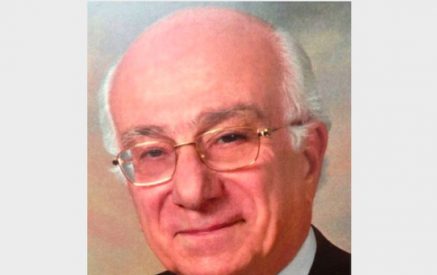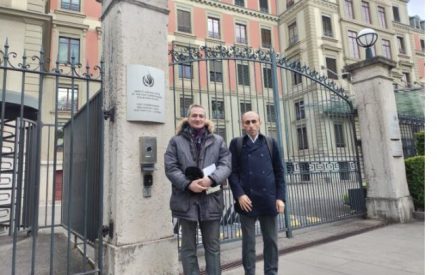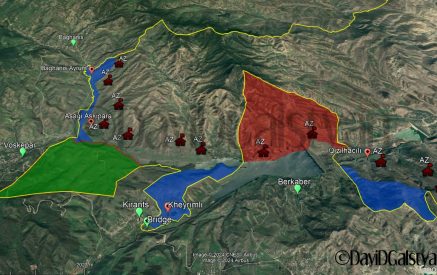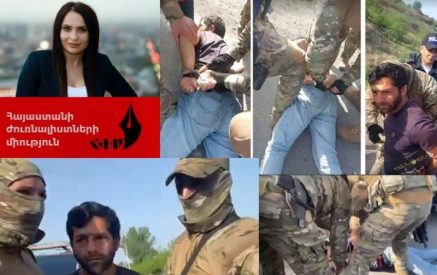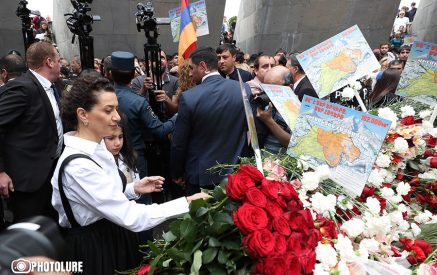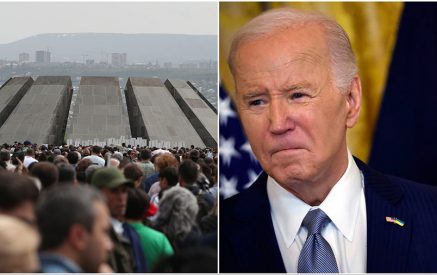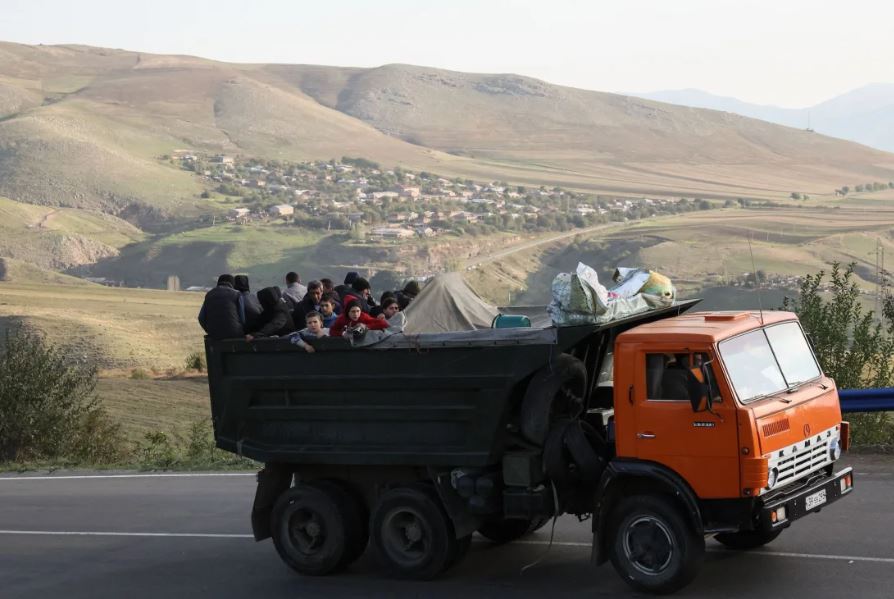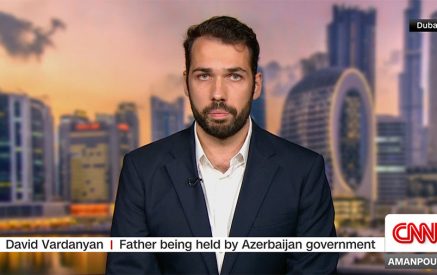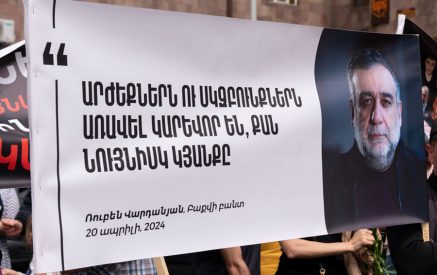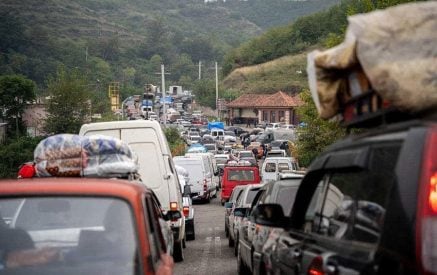By Christian Edwards
CNN
Standing on the deserted streets of Nagorno-Karabakh on the 20th anniversary of his inauguration, Azerbaijan’s Ilham Aliyev said he had achieved the “sacred goal” of his presidency: reclaiming the land taken from his father.
Azerbaijan had for decades been haunted by the loss of Nagorno-Karabakh, a tiny Caucasian enclave home to one of the world’s most protracted conflicts. Armenians herald it as the cradle of their civilization, but it lies within Azerbaijan’s borders, like an island in unfriendly seas.
As separate Soviet republics, Azerbaijan and Armenia played nice under Moscow’s watchful eye. But as that empire crumbled, Armenia, then the ascendant power, seized Nagorno-Karabakh from its weaker neighbor in a bloody war in the 1990s.
Read also
The defeat became a “festering wound” Aliyev promised to heal. But he grew frustrated by diplomatic talks that he believed aimed only “to freeze the conflict.” After decades of “meaningless and fruitless” summits, from Minsk to Key West, he changed his tack.
Brute force stepped in where diplomacy had failed. While the conflict remained frozen, Azerbaijan had transformed. Now oil-rich, backed by Turkey and armed to the teeth, it reclaimed a third of Nagorno-Karabakh in a 44-day war in 2020, stopped only by a Russian-brokered ceasefire.
But the agreement proved brittle and, in September, Azerbaijan struck again. Unable to resist its military might, the Karabakh government surrendered in just 24 hours. The region’s ethnic Armenian population fled within a week, an exodus the European Parliament said amounted to ethnic cleansing – an allegation Azerbaijan denies. “We brought peace by war,” Aliyev told a forum this month.
Whether that peace will be a lasting one is unclear. In Azerbaijan, many fear that the ethnic nationalism and vow of territorial reunification on which Aliyev built his legitimacy is more likely to find new targets than to dissipate.
And in Armenia, which was left exposed by its weak military and absent allies, the state is struggling to absorb more than 100,000 Karabakh refugees, many of whom say they cannot adjust to their new lives.
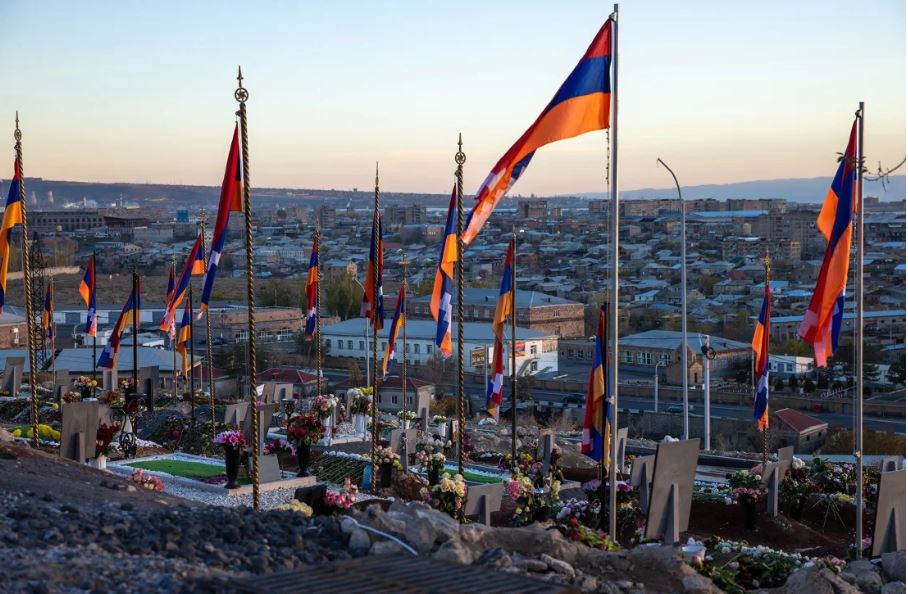
Karabakh flags fly in the Yerablur Military Cemetery in Yerevan, Armenia, above the graves of those killed during Azerbaijan’s latest offensive, November 22, 2023.
Life in limbo
Nonna Poghosyan fled her home in Stepanakert, Karabakh’s capital, with her husband, twin children and elderly parents. They now rent a small apartment in Yerevan, Armenia’s capital. But Poghosyan, who worked as the American University of Armenia’s program coordinator in Stepanakert, said her mind is still in Karabakh.
“I’m just dying to know what’s happening there in Stepanakert. What’s happening with my house? I envy everybody who breathes the air there,” she told CNN.
Aliyev said the abandoned houses had remained “untouched,” but videos on social media show Azerbaijani troops vandalizing homes.
“I don’t want to imagine it’s been taken by someone else. That’s the house we built for our kids,” said Poghosyan.
Her children were walking home from school when Azerbaijani rockets struck Stepanakert on September 19. Her husband found them on the roadside and took them to a bomb shelter. When they woke the next day, the government – the self-styled Republic of Artsakh – surrendered. Their lives had unraveled overnight.
They fled their home the next week, along with almost all of the population. By then they were starved and exhausted: Nagorno-Karabakh had been blockaded for 10 months after Azerbaijan cut off the Lachin corridor – the only road linking the enclave to Armenia proper – preventing the import of food, medicine and other supplies.
Now, the road along which necessities were stopped from entering was opened to allow the population to flood out. As tens of thousands fled at once, it took Poghosyan four days to drive from Stepanakert to Yerevan, she said – a journey that ordinarily took four hours.
As Armenian citizens, the government in Yerevan welcomed the refugees. But the support it can provide is meager. Poghosyan received a one-off payment of 100,000 Armenian dram (about $250), but she pays 300,000 dram (about $750) in rent. Her family lives off the savings they had put aside for their children’s education, money that will only last a few months.
The dissolution of the Karabakh government has left Poghosyan without child benefits, her parents without their pensions, her husband – a former soldier – without his salary. But she considers herself lucky to have an apartment. “There are people living in cars. There are people living in school basements, playgrounds,” she said.
‘We left our souls there’
Gayane Lalabekyan said she wakes every morning to her new apartment in Yerevan and asks herself if she did the right thing. Many Karabakh Armenians, struggling to come to terms with their new lives, wonder what, if anything, they could have done differently.
“I ask myself, ‘Was it the right move?’” Lalabekyan, an English teacher, told CNN. She is often overcome with guilt for abandoning her homeland, but then remembers the “primitive fear” she felt while fleeing.
“When I see my daughter, her little son; when I see my mother, she’s 72; when I see my son and his wife, they married in July; I see that, if we stayed there, maybe I wouldn’t have them,” she said.
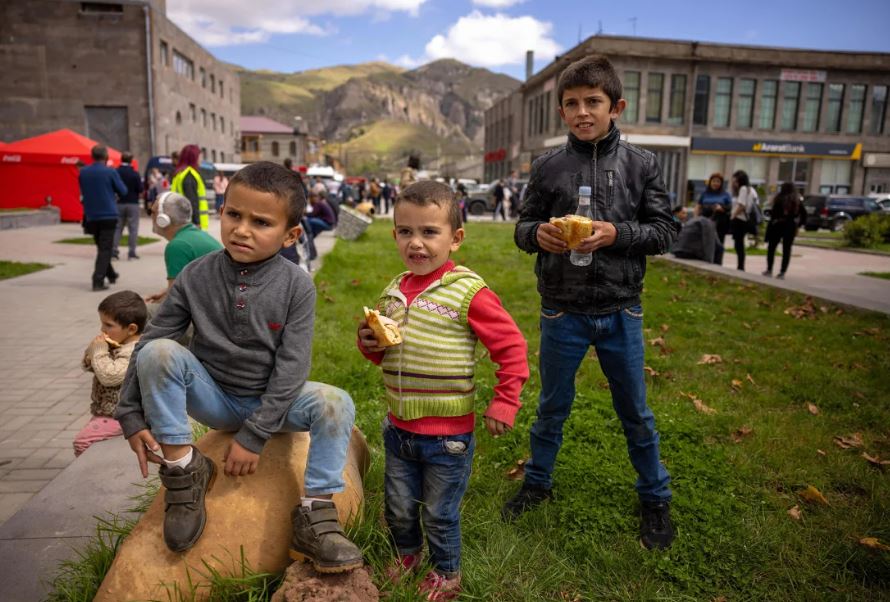
Armenian children wait outside a registration center in Goris, Armenia, while their parents stand in line, on September 27, 2023.
Aliyev said Armenians wishing to remain in Karabakh would have to accept Azerbaijani citizenship. “They had two chances: Either to integrate with the rest of Azerbaijan or to go to history,” he said.
But, after generations of violence, few Armenians believed they could live safely in Azerbaijan and almost none would submit to rule by the government in Baku, despite Azerbaijan’s insistence that no civilians had been harmed in what it called its “anti-terror measures” in the territory.
“Aliyev isn’t a real man, he’s a devil. We can’t trust their promises,” said Lalabekyan. “We can’t live together.”
Karabakh Armenians were supposed to be protected by Russian peacekeepers, which deployed to the region under the terms of the Moscow-brokered ceasefire in 2020.
But the attack came on the heels of a rupture in Armenia’s relations with Russia, after Yerevan grew frustrated that its longtime ally was failing to defend it against Azerbaijani aggression. Feeling it had no choice but to diversify its security apparatus, Armenia began to forge fledgling partnerships with Western countries.
To Russia, the move was a betrayal. It used the opportunity to wash its hands of its needy neighbor. Unable to funnel resources from its military campaign in Ukraine, and unwilling to anger Azerbaijan and Turkey, Russia stood by as the ceasefire it negotiated was shattered – though the Kremlin later rejected criticism of its peacekeeping contingent.
With Russia’s protection absent and Western support merely rhetorical, Karabakh Armenians felt they had no choice but to flee. But accepting this offers scant consolation to Lalabekyan, who said she feels like a stranger in her own country.
“What will we do next? We don’t know who we are. Are we Artsakh citizens or Armenian citizens? We can’t answer this question. We left everything there. We left our souls there.”
The prospect of peace
Some cold-eyed observers argue the plight of the Karabakh refugees may be the tragic price of regional peace. As Nagorno-Karabakh is internationally recognized as part of Azerbaijan, Armenia’s relinquishment of the enclave was a prerequisite for reconciliation.
But Aliyev has shown little magnanimity in victory. On his first visit to the enclave, he trampled on the Karabakh flag and mocked the Karabakh politicians he had imprisoned as they attempted to flee.
Among those detained is Ruben Vardanyan, former State Minister of Artsakh. Vardanyan’s son, David, described to CNN the “opaque justice system” in which his father is now ensnarled, having been charged with “financing terrorism” and “illegal border crossings,” among other things. Azerbaijan and Armenia have no diplomatic relations, so Vardanyan has been denied consular access. David has only been able to speak to his father once since his arrest on September 27, via a prison phone. “He just said he might be there for a while,” David said.
“If we really want peace in the region between Azerbaijan and Armenia, you can’t have political prisoners still being in jail while a peace agreement is signed,” he said.
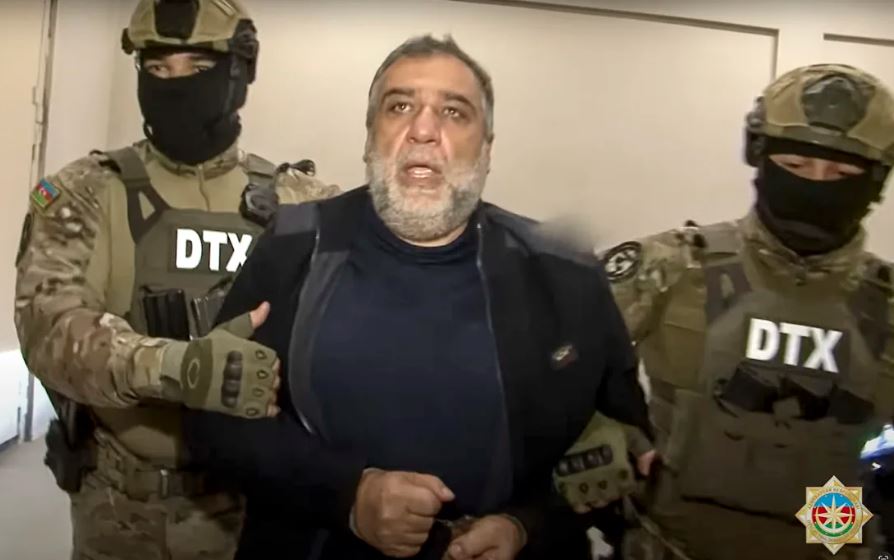
Ruben Vardanyan, a former Karabakh politician, was arrested by Azerbaijani soldiers while fleeing Karabakh and was being held in Baku, September 28, 2023.
In the weeks after the reconquest of Karabakh, Baku canceled peace talks in Brussels and Washington, citing Western bias against Azerbaijan. Meanwhile, its rhetoric around its territorial ambitions has sharpened. Government documents have referred to Armenia as “western Azerbaijan,” a nationalist concept alleging Armenia is built on Azerbaijani land.
Some hope, however, came on December 7 when Azerbaijan and Armenia agreed to a prisoner exchange – a deal brokered without Brussels or Washington, but which was welcomed by both. The US said it hoped the exchange would “lay the groundwork for a more peaceful and prosperous future.” Armenia also removed its block on Azerbaijan’s candidacy to host the COP29 climate conference next year.
The biggest sticking point, however, will likely be Nakhchivan, an Azerbaijani exclave separated from the mainland by a sliver of southern Armenia. Aliyev hopes to build a “land corridor” that would slice through Armenia, connecting Nakhchivan to Azerbaijan proper.
Aliyev described the so-called “Zangezur” corridor as a “historical necessity” that “will happen whether Armenia wants it or not.”
Armenia is not wholly opposed to the idea, but is refusing to relinquish control over parts of its territory. Last month, it presented a plan to revive the region’s infrastructure, restoring derelict train lines to better connect Armenia with Azerbaijan, Turkey, Georgia, Iran and elsewhere. It hopes to benefit from trade that could not happen during the lengthy hostilities, calling the project the “Crossroads of Peace.”
But Armenia’s preferences may count for little. Aliyev said in December “there should be no customs duties, no checks, no border security, when it goes from mainland (Azerbaijan) to Nakhchivan,” adding that the Armenians should begin construction “immediately at their own expense.”
Aliyev said he had no plans to occupy Armenian territory, stressing “if we wanted, we would have done it.” But, at the same event, he said that the territory had been “taken” from Azerbaijan in 1920 under Soviet rule, and warned Armenia “we have more historical, political and legal rights to contest your territorial integrity.”
Anna Ohanyan, a senior scholar in the Russia and Eurasia program at the Carnegie Endowment for International Peace, said Aliyev’s rhetoric had been tempered since the announcement of the prisoner exchange, but “this is largely due to a strong pushback from the US.”
“His aims have not changed: He still needs a rivalry or conflict with Armenia, even after he recovered full control of Nagorno-Karabakh,” Ohanyan told CNN. “Hosting COP29 may keep Aliyev on his best behavior for perhaps a year, but this is not a guarantee that he will play by the international rules. Russia hosted the Winter Olympics in 2014, and annexed Crimea right after.”
Diplomacy may again prove fruitless. Analysts warn of Azerbaijan’s growing military presence around southern Armenia. Olesya Vartanyan, Crisis Group’s senior analyst for the South Caucasus, told CNN “in one of the areas where Azerbaijani forces are located along the border, it would take them very little to cut Armenia into pieces.”
Karabakh Armenians always knew they were caught in the crosshairs of great-power conflict. But, after 30 years of relative peace, they were not expecting things to fall apart so quickly. As a new year beckons, they look ahead to an uncertain future, bereft of homes, possessions, and livelihoods.
“I understand it’s a big game with big countries involved: Russia’s interests, Turkey’s interests, Azerbaijan being a player between all these, Armenia being too weak to withstand. I understand it globally,” said Poghosyan. “But on the level of 100,000 people, it’s a tragedy.”

